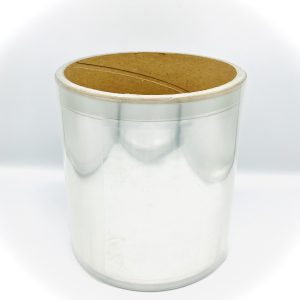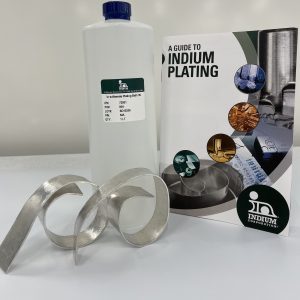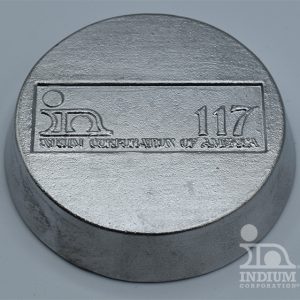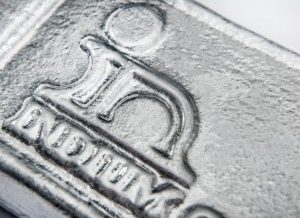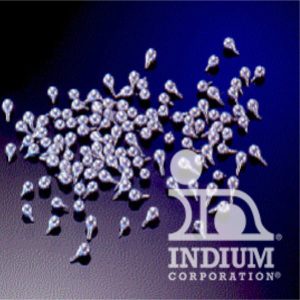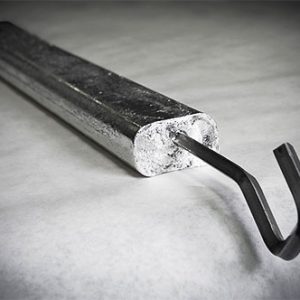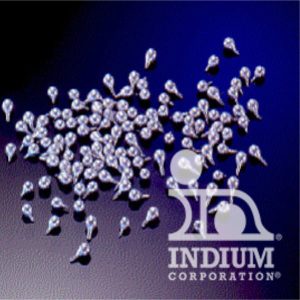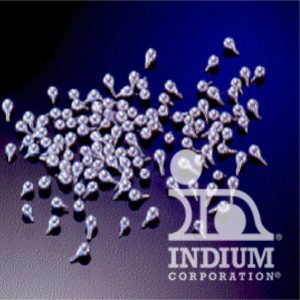Indium Metal
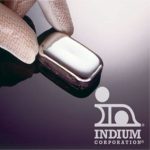
Indium Metal is extracted from indium bearing based metal ores and refined to various grades in high volume utilizing state of the art SPC controlled refining technologies. Rigorous quality standards and advanced analytical instrumentation such as ICP and GDMS ensure consistent product quality lot to lot.
General Properties and Applications of Commercial Grade Indium
Indium is versatile metal with unique physical properties. The following are some of the unique properties of indium and a sampling of innovative applications for the metal:
- Indium has a low melting point of 157°C but a high boiling point of 2080°C; one of the highest liquidus temperature range of any metal.
- Indium has a low vapor pressure making it ideal for use in high vacuum applications.
- Indium is soft, pliable and malleable, even down to cryogenic temperatures approaching absolute zero. It will form a hermetic gasket seal between two mating metal parts. Being soft, indium will deform and fill in the microstructure of two mating parts, pressed together using moderate pressure. Similarly, indium can be used as an efficient thermal conductive interface in electronics.
- Indium has relatively low toxicity.
- Indium is a bright, shiny metal that forms a thin (80-100 angstroms) protective oxide layer. It is used as a decorative trim coating metallization on plastics used in appliance and automobile trim.
- Indium will cold weld to itself, useful for bonding parts or assemblies together.
- Indium effectively reduces the melting point in solder alloys and fusible alloys.
- Indium in small percentages improves the thermal fatigue performance of solders used in electronics assembly.
- Indium will bond to glass quartz and certain ceramics and oxides.
- Indium will compensate for differing thermal coefficients of expansion of mating parts.
- Used in small amounts, indium will harden certain metals and alloys; hardens gold used in electronics and dental alloys.
- Indium coatings will provide lubricity in sleeve bearings, such as those used in aircraft piston engines and industrial machinery.
- Indium is a neutron absorber and is used in radiation detection badges.
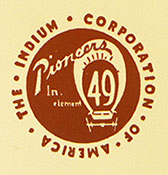
Indium metal has played a key role in technology advances since it was first investigated by Dr. William S. Murray in 1924, and with the creation of the Indium Corporation in 1934, the two have been tied together, leading and supporting the advancement of technologies that we all rely on today.
If you would like to investigate how indium metal might work for your application, please contact us.
Select An Indium Metal Category
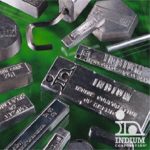 |
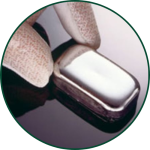 |
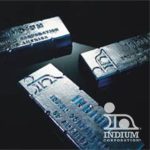 |
 |
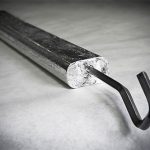 |
Showing 1–12 of 29 results

